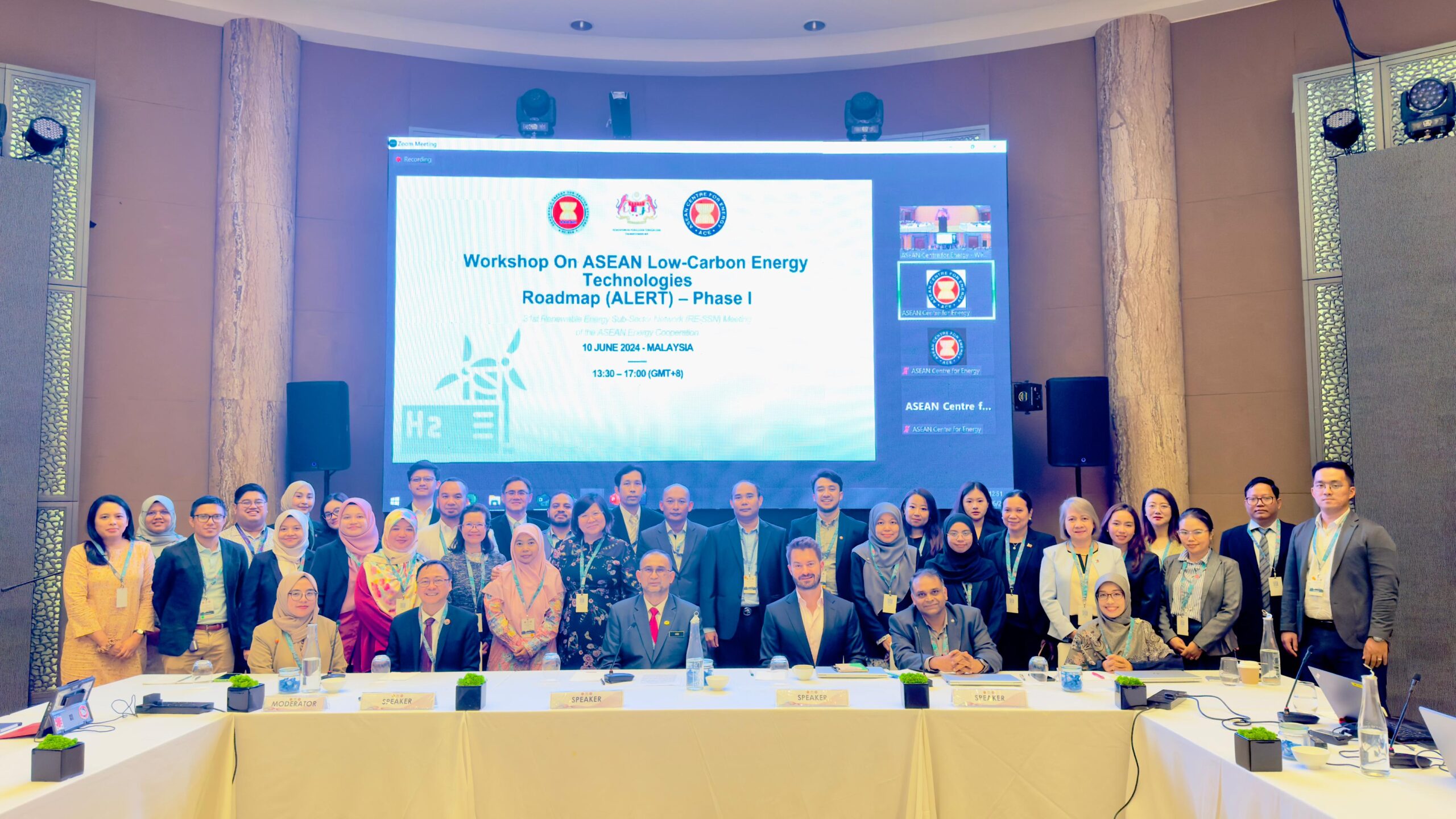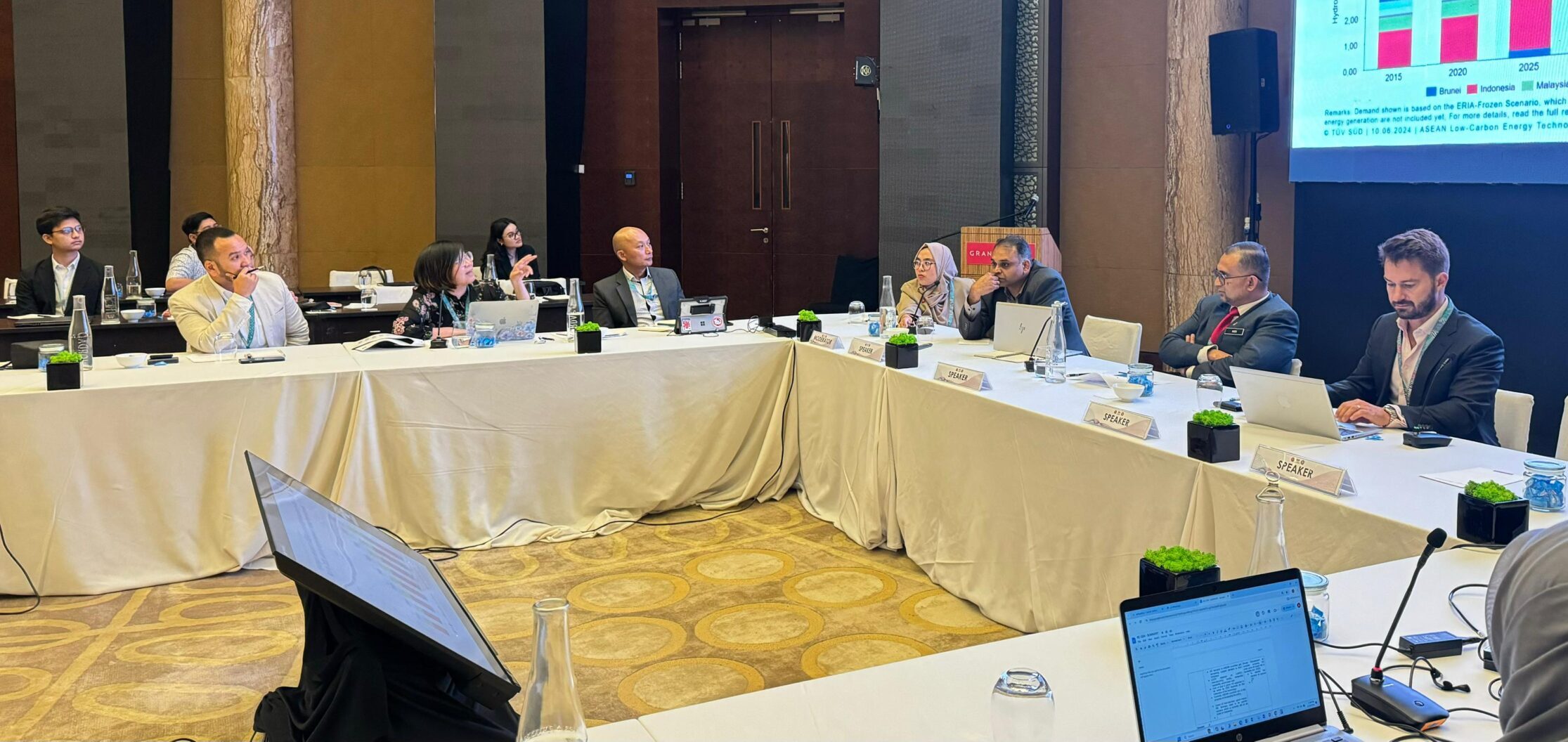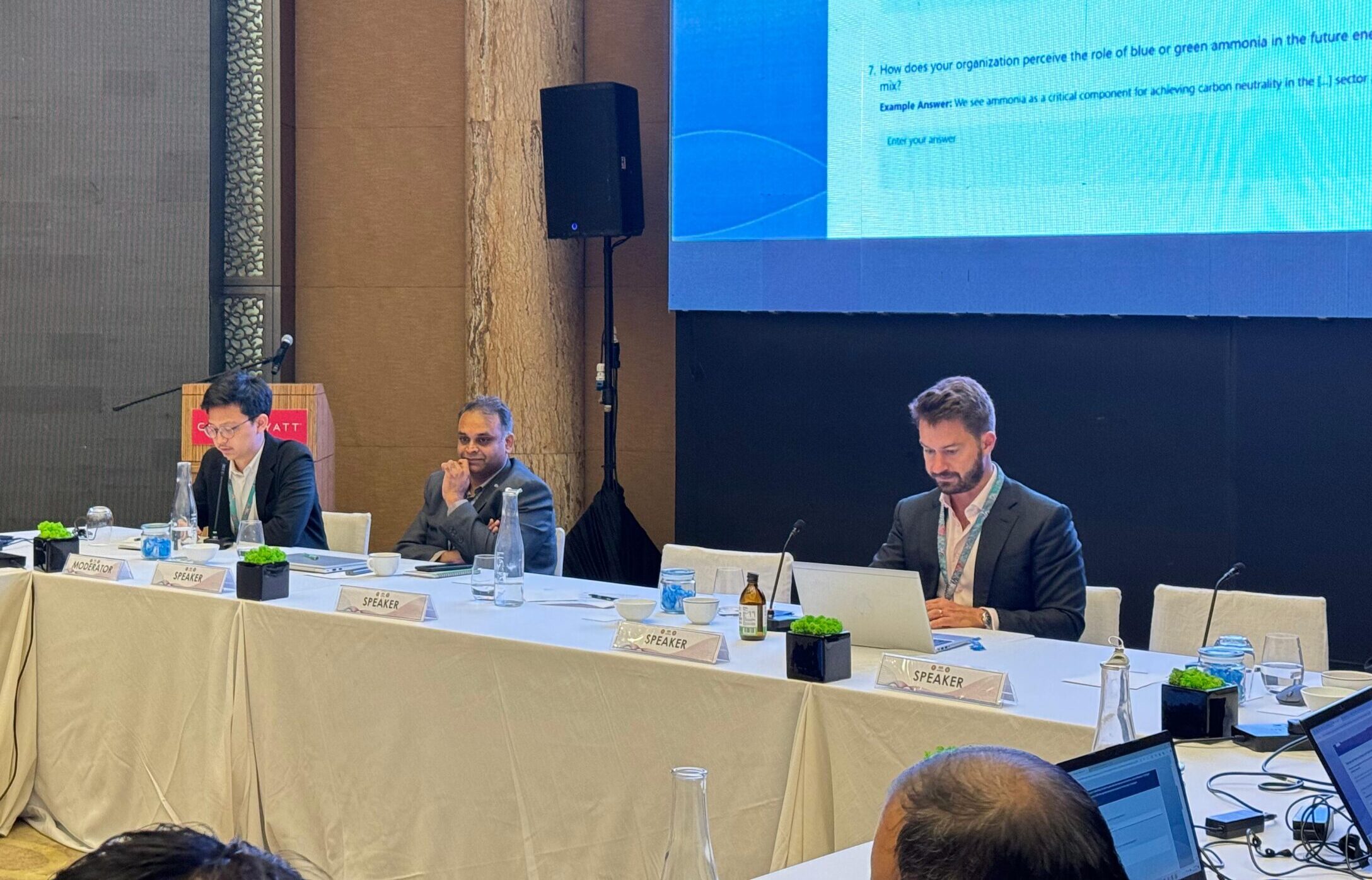Menu

Photo 1. Group Photo of ASEAN Centre for Energy, TUVSUD, and Ministry Representative of each ASEAN Member State
Associated with the 31st Renewable Energy Sub-Sector Network (RE-SSN) Meeting in Kuala Lumpur, the ASEAN Centre for Energy (ACE) conducted a workshop on the “ASEAN Low-carbon Energy Technology Roadmap (ALERT) – Phase I: Hydrogen and Ammonia”, a collaborative study between ACE and the Economic Research Institute for ASEAN and East Asia (ERIA) to map out the role of hydrogen and ammonia technologies in the ASEAN region. The workshop was participated by representatives from seven (7) ASEAN Member States (AMS), including Brunei Darussalam, Cambodia, Lao PDR, Malaysia – as the host country, Myanmar, the Philippines, and Thailand, along with private renewable energy enterprises and Dialogue Partners/International Organisations (DPs/IOs).
The workshop emphasised the importance of low-carbon energy technologies to counter increased fossil fuel use and greenhouse gas emissions. The discussions focused on mapping regional demand for hydrogen and ammonia, resolving implementation issues, and recommending usage techniques. The objectives included gathering perspectives from AMS renewable energy policymakers and investigating enablers, drivers, difficulties, and national strategies to foster low-carbon technology. The delivery of the workshop was assisted by TUVSUD as the technical consultant for the ALERT study, aligned with the ASEAN Plan of Action for Energy Cooperation (APAEC) Phase II: 2021-2025.

Photo 2. Session 1: Presentation of the Preliminary Results of ALERT H2 Study, moderated by Monika Merdekawati, Senior Research Analyst at ACE
The workshop began with opening remarks and a brief introduction from Asdirhyme Bin Abdul Rasib, the RE-SSN Chair, Undersecretary of Sustainable Energy, Ministry of Energy Transition and Water Transformation (PETRA) of Malaysia. The first session discussed about preliminary results of the ALERT H2 study, with the objectives to present a knowledgeable overview of the ALERT H2 research and to create an active discussion among ASEAN member nations regarding the role ammonia and hydrogen would play in the future energy landscape. ACE commenced the first session with a scene-setting presentation on ALERT, moderated by Dr. Ambiyah Abdullah, Senior Research Analyst of Energy Modelling & Policy Planning (MPP) at ACE, highlighting key findings and presenting important topics for discussion.
Following this, Amit Ingale from TUVSUD presented the preliminary results of the ALERT H2 study and posed the guiding questions for the discussion. The session promoted the inclusion and requested further investigation on geothermal energy potential for hydrogen generation in ASEAN. It focused on mapping green hydrogen potential to locate renewable energy sites and demand places, such as petrochemical plants and oil refineries.

Photo 3. Session 2: Questionnaire/Survey, Moderated by Marcel Nicky Arianto, Associate Research Analyst at ACE
The second session aimed to enhance awareness of hydrogen and ammonia applications across AMS through an interactive session. This session contained a survey for participants to gain clarity and insights which was moderated by Marcel Nicky Arianto, Associate Research Analyst of Power, Fossil Fuel, Alternative Energy and Storage (PFS) Department at ACE. The second session ended with a way-forward explanation of ALERT by Dr. Ambiyah Abdullah. The discussion centred on crucial aspects such as integrating energy storage cost into hydrogen production, exploring geothermal energy opportunities, and mapping the potential for green hydrogen. In general, countries in ASEAN confront obstacles in terms of technological affordability, human resource capabilities, and strategic planning, with varied levels of development in hydrogen programs and inconsistent committee structures.
The ALERT workshop ended with a wrap-up and key insights from each session. Christopher G. Zamora, Senior Head of the APAEC Department at ACE delivered closing remarks on behalf of Dr. Nuki Agya Utama, Executive Director of ACE, emphasising the collaborative efforts and positive outcomes of the workshop. Participants gained valuable insights from the workshop on how to enhance low-carbon energy technology in their region and ACE acquired constructive feedback for the study from the ASEAN Member States. ACE noted the importance of a study to assess the role of hydrogen and ammonia in the region, therefore the findings of the study will soon be published by Q4 2024, supporting the region’s efforts in utilising hydrogen and ammonia for their decarbonisation strategies.
